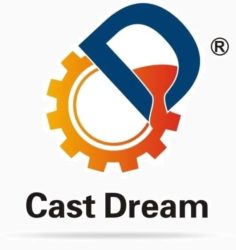Steel precision casting, forging, and machining are three usual manufacturing methods used to create metal parts. while each procedure has its very own benefits and drawbacks, steel precision casting offers several advantages over forging and machining. in this article, we will discus the advantages of steel investment casting over forging and machining.
Design Flexibility
Steel precision casting offers greater design flexibility than forging and machining. With precision casting, manufacturers can create parts with complex geometries, well informations, and sophisticated features that would be difficult or impossible to achieve using forging or machining methods. This is just because investment casting uses a mold to create the component, permitting for greater design flexibility and accuracy.
Cost-effective
Precision casting is often more cost-effective than forging or machining, particularly for high volume manufacturing runs. this is because the price of creating the mold is spread out over a greater quantity of parts, making each part les expensive to produce. In contrast, forging and machining require expensive tooling and labor-intensive processes, making them more expensive for high volume production runs.
Better Surface Accomplishment
Steel precision casting generates parts with a superior surface accomplishment compared to forging and machining. this is simply because the casting process creates parts with no seams, which results in a smooth surface accomplishment. In contrast, forging and machining create parts with visible seams that require additional finishing processes to achieve a smooth surface accomplishment.
Better Material Utilization
Steel precision casting is more efficient in terms of material s utilization compared to forging and machining. This is simply because investment casting uses a mold to create the part, which allows manufacturers to exploit less material s than forging and machining. in contrast, forging and machining require more material s to create the same item owing to the need to get rid of excess material during the manufacturing process.
Reduced Lead Times
Precision casting can significantly reduce lead times when compared to forging and machining. This is just because the casting procedure is faster and requires les manual labor than forging and machining. Precision casting also allows for quicker production of complex elements when compared to machining, which can require multiple steps and specialized equipment.
In opinion, steel precision casting offers several advantages over forging and machining, including greater layout flexibility, cost-effectivenes, better surface accomplishment, better material utilization, and reduced lead times. While each procedure has its own benefits and drawbacks, steel precision casting is often the best choice for manufacturers looking to produce complex metal parts with precision and efficiency.






